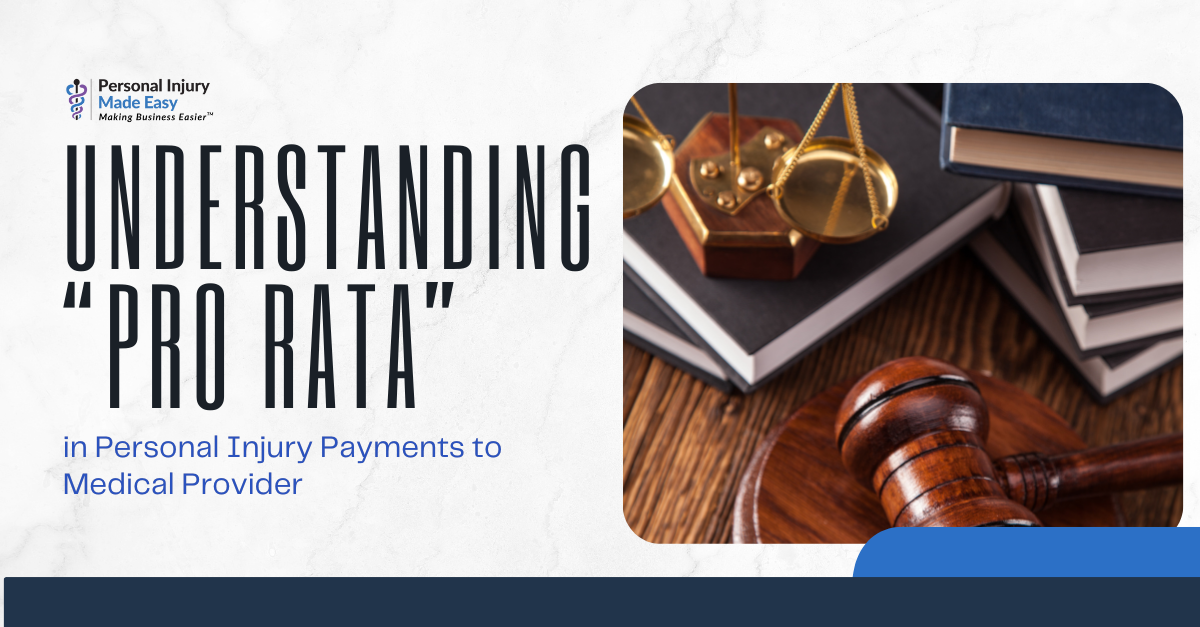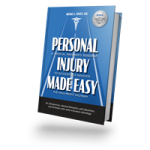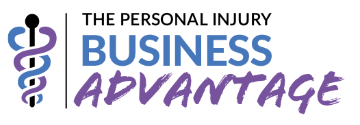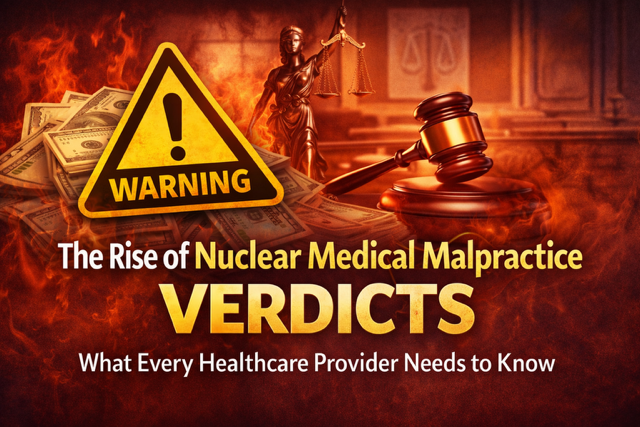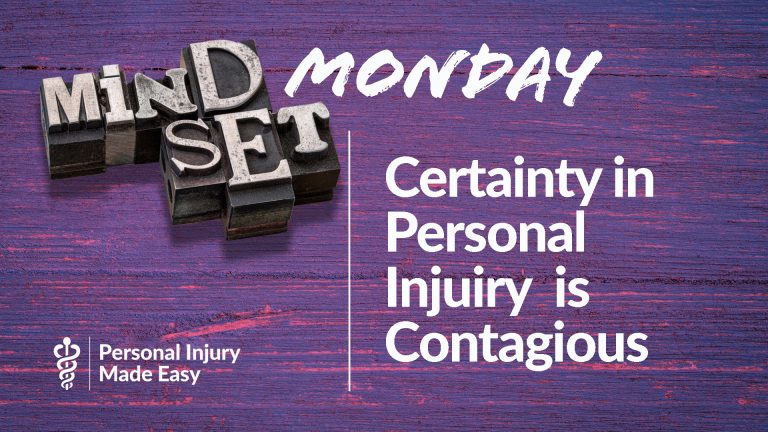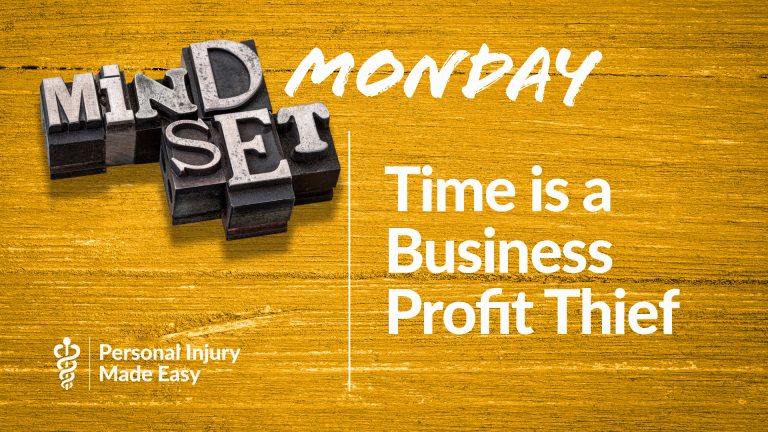
Think Ahead So You Don’t Come Out Behind in Your Personal Injury Segment
The Real Edge in PI Medicine is Preparation, Not Reaction
In personal injury (PI) medicine, most problems don’t start out as disasters. They start small—unnoticed, unchecked, and unmanaged. And by the time you “need to do something,” it’s already too late.
Sound familiar?
Most of us don’t really look for something until we need it. But by then, the damage is usually already done.
We scramble for answers when the crisis hits.
We search for leverage when the negotiation goes sideways.
We look for bill protection when our invoices get slashed.
We seek systems when staff is already drowning.
But here’s the hard truth: success doesn’t reward the reactive—it rewards the prepared.
In both business and life, the leaders who think ahead are the ones who don’t just survive… they thrive.
Don’t Fix It Later. Fix It Now.
Let’s start with something as simple and powerful as your contractual lien agreements.
Many medical offices treating PI patients still rely on lien agreements or Letters of Protection handed to them by some law firm, or don’t even realize that’s where the form in their file originally came from.
Ask yourself: Who are those agreements designed to protect?
Spoiler alert—it’s not you.
The language, the clauses, the lack of enforceable rights… these are written to insulate attorneys, not ensure you get paid.
So, what’s the play? Think ahead.
Use a far more protective medical lien agreement. One that includes detailed provisions for entitlement, financial responsibility, communication, settlement transparency, default protections, and the right to pursue payment if ignored.
If you’re waiting to “deal with that next year,” you’ve already lost this year’s leverage.
Train Before It Hurts
Here’s another trap: waiting to train your staff until you have “more time.”
Here’s the truth: that time never comes.
The time to train your staff is before they’re overwhelmed.
Before they’re emailing law firms without asking for the right information.
Before they’re accepting reductions that gut your profits.
Before they feel so unsupported and untrained that they consider leaving.
Imagine your billing manager confidently negotiating with an attorney—referencing legal provisions in your lien with professionalism and confidence, not panic.
Imagine your front desk staff spotting red flags in a PI case within the first five minutes of intake—and taking early action to address them.
Imagine your case follow-up person knowing exactly what to track, when to escalate, and how to follow through—without chasing endlessly.
That doesn’t happen by accident. It happens through preparation. Through investing in training before the damage is done.
And that includes training your team, and yourself.
Track the Right Things Now
If you’re not tracking law firm behavior, settlement patterns, lien reduction rates, and how long it takes firms to pay… you’re guessing. And in PI, guessing can be very expensive.
Here’s what forward-thinking offices do:
- Track the percentage of your bill paid by each law firm.
- Record how often the law firm cuts their own attorney fees to help their client.
- Note how long it takes the law firm to file lawsuits, settle cases, and pay you.
- Know the right questions to ask law firms, and understand applicable state PI law.
That way, you’re not reacting and making decisions as if it’s a blank slate. Instead, you’re walking in informed and positioned.
Because thinking ahead means knowing the past—to protect your present and your future.
Position Yourself Before You’re Vulnerable
Preparation isn’t just about protection. It’s also about positioning.
When you build relationships with multiple referral sources—not just law firms, but patients, peers, and even PI-related vendors—you’re future-proofing your practice.
Waiting until a law firm stops referring to look for other channels? Too late.
Waiting until your patient volume drops to market your services? Too late.
Waiting until your AR is dangerously high to focus on collections? Too late.
Think ahead.
Build your brand while you’re busy. Improve your processes before they’re broken. Strengthen your team before they’re stressed.
The Mindset Shift: Preparation Over Panic
There’s a mindset shift I’m suggesting you walk away with:
- Don’t focus on improving PI processes after your bills are attacked—build them before.
- Don’t strengthen your staff after they’re overwhelmed—level up staff skills now.
- Don’t ask for help once your accounts are in crisis—invest in experts sooner.
When you think ahead, you don’t just avoid problems, you take control.
When you’re prepared, you don’t panic.
When you stay ahead, you stay strong.
The Bottom Line
Yes, there’s a cost to preparation. It takes time. It takes training. It takes thought.
But the cost of reacting? That’s much higher.
You either invest before the storm or you rebuild after the flood. You choose.
Think ahead… so you don’t come out behind.
Your patients, your staff, your business, and your peace of mind deserve that kind of leadership.




